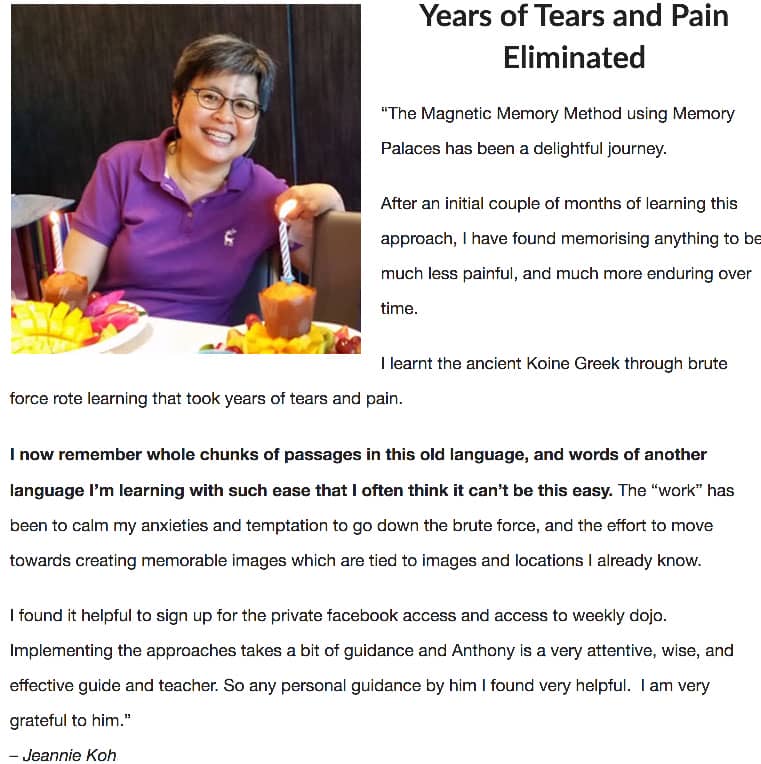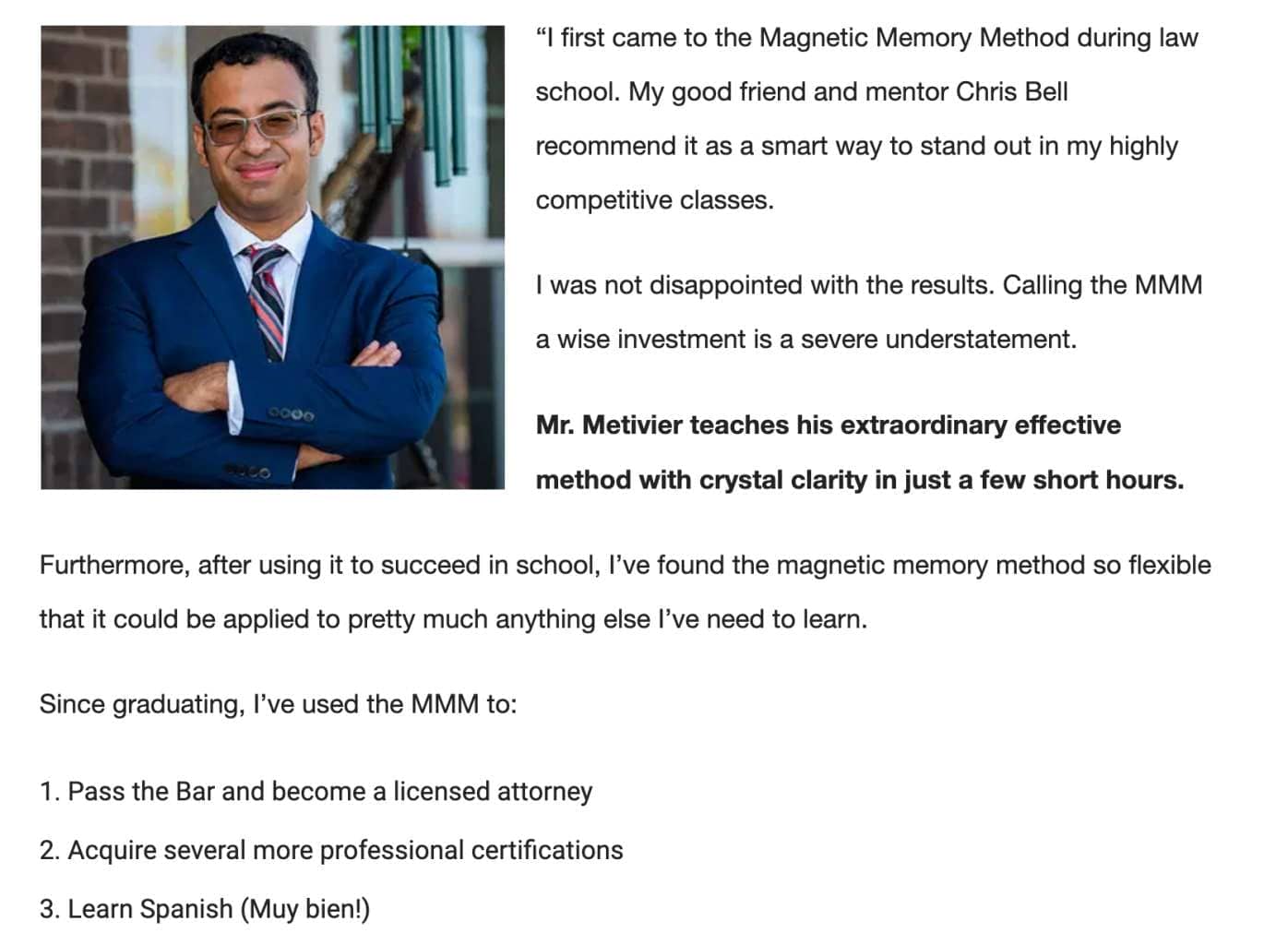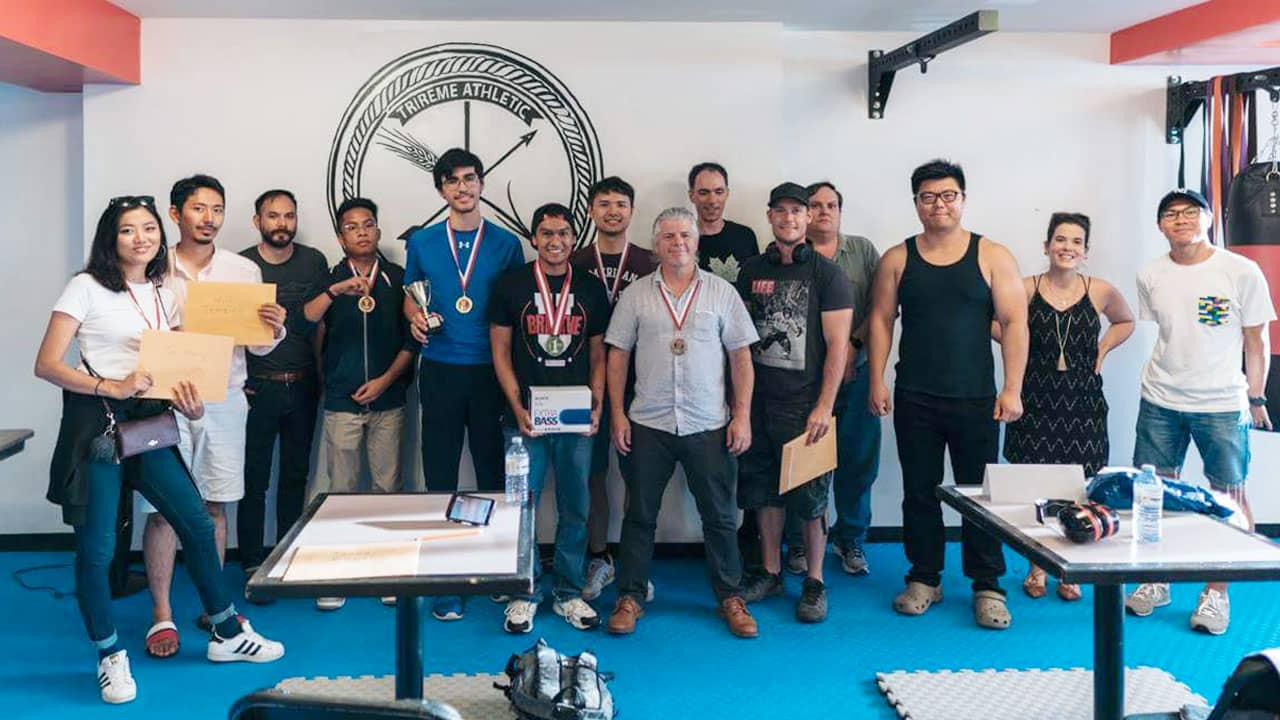Przejdź do trybu offline z Player FM !
Lifelong Learning: The Benefits in Life and in Today’s Job Market
Manage episode 408218988 series 3235856
 A lot of people throw around the term lifelong learning.
A lot of people throw around the term lifelong learning.
But what does it really mean?
And how can you adopt its principles to benefit your life in every respect?
I’m talking about more than just being smarter.
I’m talking about using lifelong learning to build the health of your body and brain.
Adopting study skills that build your wealth.
Developing know-how that helps you solve problems fast and stop many problems from arising in the first place.
Ready to discover the benefits of lifelong learning and multiple examples from real lifelong learners you’ve probably never considered before?
Let’s dive in!
What Does Lifelong Learning Really Mean? (Hint: It’s Not What You Think)
In a word, lifelong learning is an investment.
It’s an investment of time and resources into five key areas:
- Books
- Courses
- Coaching and consulting
- Deliberate practice
- Taking on new challenges outside your comfort zone
To take my own example as a PhD graduate, I was tasked with reading 500 books and articles for my two field exams. Later, I needed to read even more as part of researching my dissertation.
Although I don’t read quite so much anymore, as a true lifelong learner with polymathic interests, I continue going through books and courses related to my field.
Why? Because as researchers in the field of psychology have shown, self-correction is the key to maintaining expertise. It’s also why I personally keep and recommend a re-reading strategy as you go about your own lifelong learning journey. It’s so important to keep learning because new details and new perspectives are always emerging. We all need to keep ourselves on track.
In terms of getting coaching and consulting, I’ve written many bestselling books and many marketing pieces over the past twelve years. But to this day, I have a writing mentor I meet with every week. I learn new things from him and he helps me keep focused on the fundamentals.
When it comes to deliberate practice, this means you keep a scheduled and modular routine for implementing what you learn. If it’s language learning, you have weekly meetings to practice reading, writing, speaking and listening. For music, you follow a structured program for going through scales and various rhythmical exercises.
If it’s writing, you read the best in your field and you write, ideally every day. In all these fields of practice, you need to balance maintaining fundamental skills while gradually pushing yourself into unknown areas you haven’t mastered yet. So if you’ve been wondering what it means to be a lifelong learner, now you know what it looks like.
The Benefits of Lifelong Learning
It’s impossible to value the benefits of following the model I’ve just shared with you. Although it’s simple, it’s not always easy. But because it’s not always easy, it provides many benefits. The model stretches you and this promotes growth.
Growth, of course, can be quite an abstract thing. That’s why you want to keep a journal of your learning activities and use it to identify specific learning goals. You can structure these goals in terms of learning cycles, which will make it easier for you to see the benefits we’re about to discuss.
One: Preventing Cognitive Decline
Researchers at Harvard’s Economic Research Lab recently released a study showing that retiring early can lead to cognitive decline. According to the head researcher, Plamen Nikolov, they’ve seen damage that amounts to losing three IQ points.
That might not seem like much, but Nikolov cites a Cambridge University study showing that losing just three points can make it harder for a person to remember when they need take their medication. This ability is related to prospective memory and procedural memory – two types of memory none of us can afford to lose.
But lifelong learning, especially in areas like bilingualism, has been shown to help fortify the brain against issues like Alzheimer’s.
So if you want a healthy brain and mind when you’re older, the time to follow the lifelong learning model I shared above is now. It works because it’s mentally stimulating on multiple fronts.
Two: Problem-Solving
I often say, the more you know, the more you can know. And it’s true because information is connective in nature. Even when you use a memory strategy like chunking to break complex topics down, you’re actually making the information even more connectable.
But even better is that you’re expanding your ability to recognize patterns. This helps you see problems and solve them in advance.
Sure, you can study critical thinking and problem solving as topics unto themselves. But without embedding them in the lifelong learning model I’ve shared, it’s unlikely that you’ll get quite the same pattern recognition that leads to substantial problem-solving skills.
Three: Creativity
I’ve seen many of my students in the Magnetic Memory Method Masterclass open up creatively thanks to what they’re learning.
Christian Fitzharris, for example, used his learning about rare texts like Rhetorica Ad Herennium to create a fun rap song about memory techniques called “Brain Games.”
A huge part of its uniqueness comes from his adoption of the lifelong learning model you’ve discovered today.
It’s also what makes all my favorite books unique and interesting. To take another example, novelist David Morrell has trained in everything from defensive driving to crisis negotiation to bring a deeper level of sophistication to his writing. His lifelong learning has not only been profitable, but led to his character Rambo being one of the most famous movie franchises in history.
I took inspiration from Morrell’s learning habits when preparing to write my “Memory Detective” novel Flyboy. I completed online courses in forensics, the utility belts used by police officers and the basics of detecting crimes. An actual detective read the novel, came to visit in Australia and told me how surprised he was by the accuracy in the book.
That’s high praise indeed, but simply following my lifelong learning model is what earned it.
Four: Tenacity
One of my favorite learning activities involves memorizing Sanskrit phrases. This activity involves a lot of mnemonic images.
Although the Magnetic Memory Method does not involve creating any of those associations, it does require a certain level of discipline.
Because I got started on my lifelong journey early, I have deeper pools of tenacity than others might enjoy. But I’ve seen many people develop stronger reserves even if they spent much of their lives doing little or nothing. Mental training is a fantastic way to start developing the necessary grit. Given that discipline starts to strengthen itself over time, you won’t regret getting started today.
Five: Career Boosts
Whether you want to work for a company, freelance or become an entrepreneur, the more you learn, the more you stand to make.
I’m not just talking about money, though that is an important part of this world.
I’m also talking about the mental peace that comes with knowing that you’re employable in more than one area. By following the lifelong principles you’ll also be adaptable to industry changes and be ready to move upward when positions open up.
As entrepreneurs often say, where preparation meets opportunity, there is no ceiling.
How to Become a Lifelong Learning: 5 Practical Steps
Fortunately, there are simple and actionable strategies that will help you becoming a lifelong learner.
Let’s have a look.
One: Envision Your Future
Years ago, mind map expert and co-founder of the World Memory Championship, Tony Buzan, told me that he wished he had more time to study the greats like Michelangelo. But because being realistic is so important, we can’t wish and hope for more time. We need to strategize and make use of our time.
As he told me during dinner, “The rules will set you free.”
When it comes to lifelong learning, brainstorm about your ideal future as a learner. I did this with Tony, using his approach to mind map my entire business. By creating the vision first, I was able to identify the most important things I needed to learn.
Focus your lens. Then build the learning journey.
Two: Research the Best Resources
In my program for people who want to read faster, we focus on how to find the highest quality resources first. This step can be tricky, but it’s worth every second you spend on it.
That’s because quality books and courses do exist. Ultimately, you do have to take a risk by diving in, but there are so many free materials online, you can invest the time to really quality what you read or what courses you attend.
As you research, one thing to look out for are the stages of learning involved in the topic you want to focus on. Looking for how universities structure their courses and looking at the reading lists included with syllabi is a great tip that I use all the time.
Get your research right and you’ll be ready to make the most of the next step.
Three: Be Thorough
Some so-called “learning experts” say that you should abandon books quickly. Scott Young is one of them and I respect him highly, except on this point.
Sure, I’ve abandoned a book or two in my day, but normally not. It sets a bad pattern and leads to sloppy learning habits.
Instead, I use tools like The Freedom Journal to practice what I’ve come to call Metivier’s Razor:
Less than 90 days of study does not deserve the phrase, “I tried.”
You can take it or leave it, but I impose this rule upon myself. Not just because Tony Buzan said that “the rules will set you free.” But I’ve found so many incredible lessons and substantial wisdom in the harder books.
It’s true that some of the mass market books that are easy to read also contain gems. But they’re the product of someone else having been thorough in their learning journey.
If you want to reap the benefits of lifelong journey, you need to be that person who is thorough. Here’s the best part:
One of the hardest books I was terrified of reading? When I finally committed to spending at least 90 days on Douglas Hofstadter’s legendary Gödel Escher Bach, I was pleasantly surprised that it only took two weeks. But it took an attitude of thoroughness to get me started and keep me going.
Four: Develop a Daily Routine
I’m writing this blog on schedule. That’s because I have established a daily writing routine.
I also do my daily reading on a schedule. At some points in my life, these scheduled reading and writing times have shifted. But they’ve always been scheduled. And that’s how I’ve managed to learn so much, so consistently.
It can seem like an inconsequential thing, but designing your life around your learning is pivotal. Too much time gets wasted when there isn’t a reduction of interruptions and the avoidance of randomness. Set and follow patterns.
Rest assured: Since the focus is on using this scheduled time for learning, the routine will never get boring.
Five: Consider Groups, Platforms, Programs or Coaching
Although not everyone needs them, it can be useful to help you establish your goals by joining a group or focusing on a particular learning platform.
For example, I spent a few years of my life going through dozens of the Great Courses. Back then, it was called The Teaching Company. When I couldn’t afford the courses on cassette that I wanted, I did my best to find them at the libraries in Toronto. I rode my bike for long distances to get some of them so I didn’t have to wait on the interlibrary loan process.
You might apply this thinking to joining a cohort course. These days, many are offered online, such as David Perrel‘s Write of Passage or my Read with Momentum.
Coaching is one of my personal favorite learning strategies. I find both group coaching and one-on-one coaching invaluable. I also sometimes hire consultants or network with specialists to learn more about fields I’m studying.
Make no mistake: It’s not an extravagance. Other people’s knowledge is an asset. You can boost your progress by tapping into it.
Overcoming Common Barriers to Lifelong Learning
These days, it’s all the rage to say that there’s no such thing as free will. I know, because I wrote a whole chapter about in my book, The Victorious Mind and based it on the research fruits of my own learning on this topic.
Robert Sapolsky’s Determined is a recent entry in this field and he’s really put his foot down on the notion that free will isn’t real.
If that’s right, how on earth can you get yourself to change and become a lifelong learner?
Easy.
You’re reading this because something in you has compelled you to search for information about how to do it. Or you followed a link in one of my emails. Lean into that original impulse. Explore it. Use some of the self-inquiry techniques I teach to learn more about the mental strength you clearly have in order to get started learning about it in the first place.
When you have resistances, instead of pushing them way, get curious about them. Is your resistance to boring topics really your own? Or did you just hear from some accelerated learning guru that it’s okay to abandon books?
Find the truth lurking behind the question. Then search out a better truth and follow the recommendations attached to it. Today I’ve argued that abandoning books is a terrible lifelong learning strategy and given you some ways to deal with them, such as Metivier’s Razor and scheduling your time.
If you still can’t get yourself to do what is obviously important for lifelong learning, just keep asking why. Keep a journal, keep working on your vision statement and developing learning cycles. You’ll eventually experience a breakthrough. In fact, it will be difficult not to if you apply Metivier’s Razor.
That said, sometimes you’ve just got to have skin the game. I signed up with my current coach and the one before him precisely because I know how to engineer my absence of free will. Left to myself, I would not work on some fundamentals I know need to be in place in order to succeed. But by investing in some help, I’ve encouraged my mind to want a return on that investment. And this has propelled my attention in ways that just wouldn’t be possible otherwise.
Lifelong Learning In Action: Success Stories
I mentioned Christian Fitzharris above and his rap song “Brain Games.” He’s also been an actor, magician, musician and is working towards becoming a sommelier.
My testimonials page is filled with similar success stories. Here are some of my favorites.
Jeannie memorized scripture with much greater ease thanks to the learning strategies I teach. Her story is also reflected in Matt Barclay’s experience, someone who used memory techniques to help him recover from cognitive issues he experienced following a cardiac arrest.
David S. Matthew is one of several lawyers I’ve helped pass the bar. What makes his success stick out is that he also learned Spanish while preparing for it. As I’m sure you can imagine, being a bilingual lawyer is definitely going to increase his value in the market for the rest of his career.
For quite a few years, James Gerwing would email me with updates after he completed the Magnetic Memory Method Masterclass.
Here’s James in his own words:
“About 5 years ago, I began taking your online course and then went into some memory competitions.
I am the 4 time, current, undefeated (and record holder) of the Alberta memory championships. Even better; I just won the 2019 Canadian Memory Championships (AND the first ever pan-provincial championship).
I had been banging things into the void of my memory for decades. You have revived, and revived in me, the concept that where there is a will, there is a way.
Since signing up for your Masterclass I have taken a Latin course at the University of Alberta and scored above 90% (that is not common territory for me). Thanks for your input.”
Latin is not an easy language. But as a lifelong learner who follows the core principles, James easily managed to become a national memory champion and score highly in this language. He’s a true Renaissance man.
What about you?
Do you have big goals?
Now that you have the lifelong learning strategy many people have followed, the only thing missing is a strong set of memory skills. If you’d like help learning them, grab my free memory improvement course now:
In just four videos and a few simple worksheets, it will help you master your memory.
That way, you’ll not only remember the things you learn.
You’ll remember to follow the simple lifelong learning structure we discussed today.
Remember: lifelong learning is transformative. It will positively impact each and every area of your life and your overall well-being.
And so what if there’s no free will? If you’ve bumped into me and I’ve succeeded in persuading you to take action, that’s what it’s really all about. Lean into the actions you’re taking and it will help you continue taking them.
Reflective thinking is the ultimate open secret that will help open even more doors to learning as much as possible across the span of your life. The better your memory, the better the journey will be.
The post Lifelong Learning: The Benefits in Life and in Today’s Job Market appeared first on Magnetic Memory Method - How to Memorize With A Memory Palace.
19 odcinków
Lifelong Learning: The Benefits in Life and in Today’s Job Market
Magnetic Memory Method – How to Memorize With A Memory Palace
Manage episode 408218988 series 3235856
 A lot of people throw around the term lifelong learning.
A lot of people throw around the term lifelong learning.
But what does it really mean?
And how can you adopt its principles to benefit your life in every respect?
I’m talking about more than just being smarter.
I’m talking about using lifelong learning to build the health of your body and brain.
Adopting study skills that build your wealth.
Developing know-how that helps you solve problems fast and stop many problems from arising in the first place.
Ready to discover the benefits of lifelong learning and multiple examples from real lifelong learners you’ve probably never considered before?
Let’s dive in!
What Does Lifelong Learning Really Mean? (Hint: It’s Not What You Think)
In a word, lifelong learning is an investment.
It’s an investment of time and resources into five key areas:
- Books
- Courses
- Coaching and consulting
- Deliberate practice
- Taking on new challenges outside your comfort zone
To take my own example as a PhD graduate, I was tasked with reading 500 books and articles for my two field exams. Later, I needed to read even more as part of researching my dissertation.
Although I don’t read quite so much anymore, as a true lifelong learner with polymathic interests, I continue going through books and courses related to my field.
Why? Because as researchers in the field of psychology have shown, self-correction is the key to maintaining expertise. It’s also why I personally keep and recommend a re-reading strategy as you go about your own lifelong learning journey. It’s so important to keep learning because new details and new perspectives are always emerging. We all need to keep ourselves on track.
In terms of getting coaching and consulting, I’ve written many bestselling books and many marketing pieces over the past twelve years. But to this day, I have a writing mentor I meet with every week. I learn new things from him and he helps me keep focused on the fundamentals.
When it comes to deliberate practice, this means you keep a scheduled and modular routine for implementing what you learn. If it’s language learning, you have weekly meetings to practice reading, writing, speaking and listening. For music, you follow a structured program for going through scales and various rhythmical exercises.
If it’s writing, you read the best in your field and you write, ideally every day. In all these fields of practice, you need to balance maintaining fundamental skills while gradually pushing yourself into unknown areas you haven’t mastered yet. So if you’ve been wondering what it means to be a lifelong learner, now you know what it looks like.
The Benefits of Lifelong Learning
It’s impossible to value the benefits of following the model I’ve just shared with you. Although it’s simple, it’s not always easy. But because it’s not always easy, it provides many benefits. The model stretches you and this promotes growth.
Growth, of course, can be quite an abstract thing. That’s why you want to keep a journal of your learning activities and use it to identify specific learning goals. You can structure these goals in terms of learning cycles, which will make it easier for you to see the benefits we’re about to discuss.
One: Preventing Cognitive Decline
Researchers at Harvard’s Economic Research Lab recently released a study showing that retiring early can lead to cognitive decline. According to the head researcher, Plamen Nikolov, they’ve seen damage that amounts to losing three IQ points.
That might not seem like much, but Nikolov cites a Cambridge University study showing that losing just three points can make it harder for a person to remember when they need take their medication. This ability is related to prospective memory and procedural memory – two types of memory none of us can afford to lose.
But lifelong learning, especially in areas like bilingualism, has been shown to help fortify the brain against issues like Alzheimer’s.
So if you want a healthy brain and mind when you’re older, the time to follow the lifelong learning model I shared above is now. It works because it’s mentally stimulating on multiple fronts.
Two: Problem-Solving
I often say, the more you know, the more you can know. And it’s true because information is connective in nature. Even when you use a memory strategy like chunking to break complex topics down, you’re actually making the information even more connectable.
But even better is that you’re expanding your ability to recognize patterns. This helps you see problems and solve them in advance.
Sure, you can study critical thinking and problem solving as topics unto themselves. But without embedding them in the lifelong learning model I’ve shared, it’s unlikely that you’ll get quite the same pattern recognition that leads to substantial problem-solving skills.
Three: Creativity
I’ve seen many of my students in the Magnetic Memory Method Masterclass open up creatively thanks to what they’re learning.
Christian Fitzharris, for example, used his learning about rare texts like Rhetorica Ad Herennium to create a fun rap song about memory techniques called “Brain Games.”
A huge part of its uniqueness comes from his adoption of the lifelong learning model you’ve discovered today.
It’s also what makes all my favorite books unique and interesting. To take another example, novelist David Morrell has trained in everything from defensive driving to crisis negotiation to bring a deeper level of sophistication to his writing. His lifelong learning has not only been profitable, but led to his character Rambo being one of the most famous movie franchises in history.
I took inspiration from Morrell’s learning habits when preparing to write my “Memory Detective” novel Flyboy. I completed online courses in forensics, the utility belts used by police officers and the basics of detecting crimes. An actual detective read the novel, came to visit in Australia and told me how surprised he was by the accuracy in the book.
That’s high praise indeed, but simply following my lifelong learning model is what earned it.
Four: Tenacity
One of my favorite learning activities involves memorizing Sanskrit phrases. This activity involves a lot of mnemonic images.
Although the Magnetic Memory Method does not involve creating any of those associations, it does require a certain level of discipline.
Because I got started on my lifelong journey early, I have deeper pools of tenacity than others might enjoy. But I’ve seen many people develop stronger reserves even if they spent much of their lives doing little or nothing. Mental training is a fantastic way to start developing the necessary grit. Given that discipline starts to strengthen itself over time, you won’t regret getting started today.
Five: Career Boosts
Whether you want to work for a company, freelance or become an entrepreneur, the more you learn, the more you stand to make.
I’m not just talking about money, though that is an important part of this world.
I’m also talking about the mental peace that comes with knowing that you’re employable in more than one area. By following the lifelong principles you’ll also be adaptable to industry changes and be ready to move upward when positions open up.
As entrepreneurs often say, where preparation meets opportunity, there is no ceiling.
How to Become a Lifelong Learning: 5 Practical Steps
Fortunately, there are simple and actionable strategies that will help you becoming a lifelong learner.
Let’s have a look.
One: Envision Your Future
Years ago, mind map expert and co-founder of the World Memory Championship, Tony Buzan, told me that he wished he had more time to study the greats like Michelangelo. But because being realistic is so important, we can’t wish and hope for more time. We need to strategize and make use of our time.
As he told me during dinner, “The rules will set you free.”
When it comes to lifelong learning, brainstorm about your ideal future as a learner. I did this with Tony, using his approach to mind map my entire business. By creating the vision first, I was able to identify the most important things I needed to learn.
Focus your lens. Then build the learning journey.
Two: Research the Best Resources
In my program for people who want to read faster, we focus on how to find the highest quality resources first. This step can be tricky, but it’s worth every second you spend on it.
That’s because quality books and courses do exist. Ultimately, you do have to take a risk by diving in, but there are so many free materials online, you can invest the time to really quality what you read or what courses you attend.
As you research, one thing to look out for are the stages of learning involved in the topic you want to focus on. Looking for how universities structure their courses and looking at the reading lists included with syllabi is a great tip that I use all the time.
Get your research right and you’ll be ready to make the most of the next step.
Three: Be Thorough
Some so-called “learning experts” say that you should abandon books quickly. Scott Young is one of them and I respect him highly, except on this point.
Sure, I’ve abandoned a book or two in my day, but normally not. It sets a bad pattern and leads to sloppy learning habits.
Instead, I use tools like The Freedom Journal to practice what I’ve come to call Metivier’s Razor:
Less than 90 days of study does not deserve the phrase, “I tried.”
You can take it or leave it, but I impose this rule upon myself. Not just because Tony Buzan said that “the rules will set you free.” But I’ve found so many incredible lessons and substantial wisdom in the harder books.
It’s true that some of the mass market books that are easy to read also contain gems. But they’re the product of someone else having been thorough in their learning journey.
If you want to reap the benefits of lifelong journey, you need to be that person who is thorough. Here’s the best part:
One of the hardest books I was terrified of reading? When I finally committed to spending at least 90 days on Douglas Hofstadter’s legendary Gödel Escher Bach, I was pleasantly surprised that it only took two weeks. But it took an attitude of thoroughness to get me started and keep me going.
Four: Develop a Daily Routine
I’m writing this blog on schedule. That’s because I have established a daily writing routine.
I also do my daily reading on a schedule. At some points in my life, these scheduled reading and writing times have shifted. But they’ve always been scheduled. And that’s how I’ve managed to learn so much, so consistently.
It can seem like an inconsequential thing, but designing your life around your learning is pivotal. Too much time gets wasted when there isn’t a reduction of interruptions and the avoidance of randomness. Set and follow patterns.
Rest assured: Since the focus is on using this scheduled time for learning, the routine will never get boring.
Five: Consider Groups, Platforms, Programs or Coaching
Although not everyone needs them, it can be useful to help you establish your goals by joining a group or focusing on a particular learning platform.
For example, I spent a few years of my life going through dozens of the Great Courses. Back then, it was called The Teaching Company. When I couldn’t afford the courses on cassette that I wanted, I did my best to find them at the libraries in Toronto. I rode my bike for long distances to get some of them so I didn’t have to wait on the interlibrary loan process.
You might apply this thinking to joining a cohort course. These days, many are offered online, such as David Perrel‘s Write of Passage or my Read with Momentum.
Coaching is one of my personal favorite learning strategies. I find both group coaching and one-on-one coaching invaluable. I also sometimes hire consultants or network with specialists to learn more about fields I’m studying.
Make no mistake: It’s not an extravagance. Other people’s knowledge is an asset. You can boost your progress by tapping into it.
Overcoming Common Barriers to Lifelong Learning
These days, it’s all the rage to say that there’s no such thing as free will. I know, because I wrote a whole chapter about in my book, The Victorious Mind and based it on the research fruits of my own learning on this topic.
Robert Sapolsky’s Determined is a recent entry in this field and he’s really put his foot down on the notion that free will isn’t real.
If that’s right, how on earth can you get yourself to change and become a lifelong learner?
Easy.
You’re reading this because something in you has compelled you to search for information about how to do it. Or you followed a link in one of my emails. Lean into that original impulse. Explore it. Use some of the self-inquiry techniques I teach to learn more about the mental strength you clearly have in order to get started learning about it in the first place.
When you have resistances, instead of pushing them way, get curious about them. Is your resistance to boring topics really your own? Or did you just hear from some accelerated learning guru that it’s okay to abandon books?
Find the truth lurking behind the question. Then search out a better truth and follow the recommendations attached to it. Today I’ve argued that abandoning books is a terrible lifelong learning strategy and given you some ways to deal with them, such as Metivier’s Razor and scheduling your time.
If you still can’t get yourself to do what is obviously important for lifelong learning, just keep asking why. Keep a journal, keep working on your vision statement and developing learning cycles. You’ll eventually experience a breakthrough. In fact, it will be difficult not to if you apply Metivier’s Razor.
That said, sometimes you’ve just got to have skin the game. I signed up with my current coach and the one before him precisely because I know how to engineer my absence of free will. Left to myself, I would not work on some fundamentals I know need to be in place in order to succeed. But by investing in some help, I’ve encouraged my mind to want a return on that investment. And this has propelled my attention in ways that just wouldn’t be possible otherwise.
Lifelong Learning In Action: Success Stories
I mentioned Christian Fitzharris above and his rap song “Brain Games.” He’s also been an actor, magician, musician and is working towards becoming a sommelier.
My testimonials page is filled with similar success stories. Here are some of my favorites.
Jeannie memorized scripture with much greater ease thanks to the learning strategies I teach. Her story is also reflected in Matt Barclay’s experience, someone who used memory techniques to help him recover from cognitive issues he experienced following a cardiac arrest.
David S. Matthew is one of several lawyers I’ve helped pass the bar. What makes his success stick out is that he also learned Spanish while preparing for it. As I’m sure you can imagine, being a bilingual lawyer is definitely going to increase his value in the market for the rest of his career.
For quite a few years, James Gerwing would email me with updates after he completed the Magnetic Memory Method Masterclass.
Here’s James in his own words:
“About 5 years ago, I began taking your online course and then went into some memory competitions.
I am the 4 time, current, undefeated (and record holder) of the Alberta memory championships. Even better; I just won the 2019 Canadian Memory Championships (AND the first ever pan-provincial championship).
I had been banging things into the void of my memory for decades. You have revived, and revived in me, the concept that where there is a will, there is a way.
Since signing up for your Masterclass I have taken a Latin course at the University of Alberta and scored above 90% (that is not common territory for me). Thanks for your input.”
Latin is not an easy language. But as a lifelong learner who follows the core principles, James easily managed to become a national memory champion and score highly in this language. He’s a true Renaissance man.
What about you?
Do you have big goals?
Now that you have the lifelong learning strategy many people have followed, the only thing missing is a strong set of memory skills. If you’d like help learning them, grab my free memory improvement course now:
In just four videos and a few simple worksheets, it will help you master your memory.
That way, you’ll not only remember the things you learn.
You’ll remember to follow the simple lifelong learning structure we discussed today.
Remember: lifelong learning is transformative. It will positively impact each and every area of your life and your overall well-being.
And so what if there’s no free will? If you’ve bumped into me and I’ve succeeded in persuading you to take action, that’s what it’s really all about. Lean into the actions you’re taking and it will help you continue taking them.
Reflective thinking is the ultimate open secret that will help open even more doors to learning as much as possible across the span of your life. The better your memory, the better the journey will be.
The post Lifelong Learning: The Benefits in Life and in Today’s Job Market appeared first on Magnetic Memory Method - How to Memorize With A Memory Palace.
19 odcinków
所有剧集
×Zapraszamy w Player FM
Odtwarzacz FM skanuje sieć w poszukiwaniu wysokiej jakości podcastów, abyś mógł się nią cieszyć już teraz. To najlepsza aplikacja do podcastów, działająca na Androidzie, iPhonie i Internecie. Zarejestruj się, aby zsynchronizować subskrypcje na różnych urządzeniach.








